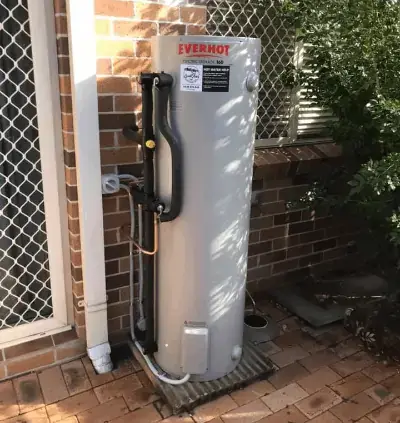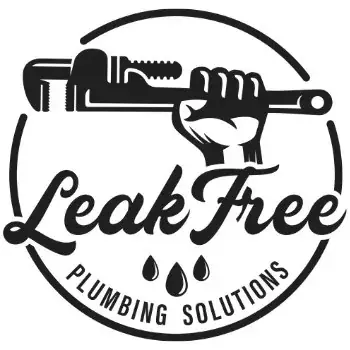Pros and cons of different hot water systems
Are you currently in the market for a new hot water system, but feeling uncertain about which option would be the ideal fit for both your household's needs and your budget? Rest assured, you're not the only one facing this dilemma. Because hot water systems are essential for providing comfort and convenience in homes and commercial spaces it's important to look at every aspect before making your decision. You will find a wide range of brands, heater sizes, and types making it quite challenging to determine which one to choose. Ultimately you should choose a hot water system based on factors such as budget, space availability, energy efficiency goals, and your climate zone conditions. That's where weighing up the pros and cons of each system before installing, replacing, or upgrading will help you make an informed decision that aligns with your needs and preferences.

Key points in choosing a hot water system
We have put together key points to help you understand the pros and cons of the different hot water system types. We hope this information will help you make an informed decision when choosing the right hot water system for your needs.
Conventional Storage Hot Water Systems
Operates by heating and storing a certain amount of water in a tank until it's needed for various purposes, such as bathing, cleaning, and cooking.
Pros:
- Affordability: Conventional storage water heaters are relatively inexpensive to purchase and install.
- Familiarity: They are widely used and understood, making maintenance and repairs easier.
- Continuous Supply: Hot water is readily available as long as the storage tank is properly sized.
Cons:
- Energy Consumption: These systems continuously heat water, leading to standby heat loss and higher energy bills.
- Limited Capacity: The size of the storage tank dictates the available hot water supply. Running out of hot water during peak usage times is possible.
- Space Requirements: The large storage tank requires significant space.
Tankless (On-Demand) Hot Water Heaters
A tankless hot water system, also known as an on-demand water heater or instantaneous water heater, is a type of water heating system that provides hot water as needed without the use of a storage tank.
Pros:
- Energy Efficiency: Tankless systems heat water only when needed, reducing standby heat loss and lowering energy consumption.
- Unlimited Hot Water: They provide a continuous supply of hot water, eliminating the risk of running out.
- Space Saving: Tankless heaters are compact and can be mounted on walls, saving valuable floor space.
Cons:
- Higher Initial Cost: Tankless systems are usually more expensive to purchase and install compared to conventional storage heaters.
- Installation Complexity: Proper installation may require upgrades to gas lines or electrical circuits, adding to installation costs.
- Flow Rate Limitation: The capacity of a tankless system is determined by its flow rate, which can limit simultaneous hot water usage.
Heat Pump Hot Water System
This hot water heater extracts heat from the surrounding air, ground, or water and transfers it to the water in the storage tank, it works by heat transfer and compression to heat the water effectively raising its temperature.
Pros:
- High Efficiency: Heat pumps extract heat from the surrounding air, making them highly energy-efficient and cost-effective in the long run.
- Environmental Friendliness: They produce fewer greenhouse gas emissions compared to traditional heating systems.
- Dual Functionality: Some models offer both heating and cooling functions, providing additional value.
Cons:
- Climate Dependence: The efficiency of heat pump water heaters is influenced by ambient air temperature, which might be less effective in colder climates.
- Higher Initial Cost: Initial investment and installation costs can be higher, although they are offset by energy savings over time.
- Space Requirements: These systems require adequate space for installation, including proper ventilation.
Solar Hot Water System
This system captures solar energy through solar collectors or panels and transfers that energy to the water, providing a sustainable and environmentally friendly way to generate hot water.
Pros:
- Renewable Energy: Solar water heaters utilize the sun's energy, reducing reliance on fossil fuels and decreasing energy costs.
- Low Operating Costs: Once installed, solar water heaters have minimal operating costs, as they rely on sunlight for heating.
- Environmental Benefits: Solar systems are eco-friendly, producing no emissions during operation.
Cons:
- Initial Investment: The upfront cost of purchasing and installing solar water heaters can be substantial, including solar panels and storage tanks.
- Weather Dependence: Cloudy days and low sunlight can affect the system's efficiency, requiring a backup heating source.
- Space and Aesthetics: Solar panels require sufficient roof space and might alter the appearance of your property.
Gas Hot Water Systems
A gas hot water system is a type of water heating technology that uses natural gas or propane as a fuel source to heat water for domestic or commercial use
Pros:
- Lower Operating Costs: Gas water heaters generally have lower operating costs compared to electric water heaters, especially in areas where natural gas prices are relatively low.
- Faster Recovery Rate: Gas water heaters typically have a faster recovery rate than electric water heaters. This means they can heat up a new batch of hot water more quickly after the existing supply is depleted.
- High Hot Water Capacity: Gas storage tank water heaters can provide a large and continuous supply of hot water, making them suitable for households with higher hot water demands.
- Energy Efficiency: Gas water heaters are often more energy-efficient than older models, particularly if they have a high Energy Factor (EF) rating. Modern condensing gas water heaters can also recover heat from exhaust gases, improving efficiency.
- Reliability During Power Outages: Gas water heaters do not rely on electricity to operate, so they can still provide hot water during power outages, ensuring continuous access to hot water.
- Compact Design: Gas water heaters, especially tankless models, tend to be more compact and take up less space than electric storage tank water heaters.
Cons:
- Higher Upfront Cost: Gas water heaters typically have a higher upfront cost compared to electric storage tank water heaters. Additionally, the installation cost may be higher if gas lines need to be extended or installed.
- Installation Challenges: Installing gas water heaters can be more complex, especially if your home does not already have a gas line in place. This could involve additional installation costs.
- Combustion Safety Concerns: Gas water heaters involve the combustion of natural gas, which can raise safety concerns related to gas leaks, carbon monoxide emissions, and proper ventilation. Regular maintenance is necessary to ensure safe operation.
- Environmental Impact: While natural gas is a cleaner-burning fuel compared to coal, it is still a fossil fuel and contributes to greenhouse gas emissions and climate change.
- Limited Location Options: Gas water heaters require proper ventilation to expel combustion gases, which can limit where they can be installed within a home.
- Maintenance Requirements: Gas water heaters require periodic maintenance, including checking for gas leaks, ensuring proper ventilation, and cleaning combustion components.
- Availability: In some regions, access to natural gas lines might be limited, making gas water heaters less practical or more costly to install.
Electric Hot Water System
An electric hot water system is a type of water heating technology that uses electricity as the primary energy source to heat water for various domestic or commercial purposes. These systems are commonly used in areas where electric power is readily available and can provide a consistent supply of hot water.
Pros:
- Energy Efficiency: Electric water heaters are generally more energy-efficient compared to traditional gas water heaters. They have higher Energy Factor (EF) ratings, meaning they convert more of the electricity they consume into usable hot water.
- Ease of Installation: Electric water heaters are relatively easy to install, especially in areas where gas lines are not readily available or practical to install.
- Safety: Electric water heaters do not produce combustion gases like gas water heaters, reducing the risk of carbon monoxide leaks and other safety concerns associated with burning fossil fuels.
- Low Upfront Cost: Electric water heaters tend to have a lower upfront cost compared to some other types of water heaters, such as heat pump or solar water heaters.
- Low Maintenance: Electric water heaters generally require less maintenance compared to gas water heaters, as there are no combustion-related components to worry about.
- Availability: Electric water heaters are widely available and can be purchased in various sizes to suit different household needs.
Cons:
- Operating Cost: Electric water heaters tend to have higher operating costs in the long run due to the cost of electricity, especially in regions where electricity rates are high.
- Slower Recovery Rate: Electric water heaters often have a slower recovery rate compared to gas or tankless water heaters. This means that if you deplete the hot water supply, it may take some time for the water heater to heat up a new batch of hot water.
- Limited Hot Water Capacity: Traditional electric water heaters typically have a limited hot water storage capacity. If you run out of hot water, you may need to wait for the heater to heat up more water.

For all your hot water system needs Leak Free Plumbing Solutions has years of experience and can provide expert advice and service, To speak to one of our licensed technicians call 0422 392 447 or complete our online enquiry form today
Reference - https://www.choice.com.au/home-improvement/water/hot-water-systems/buying-guides/hot-water-systems